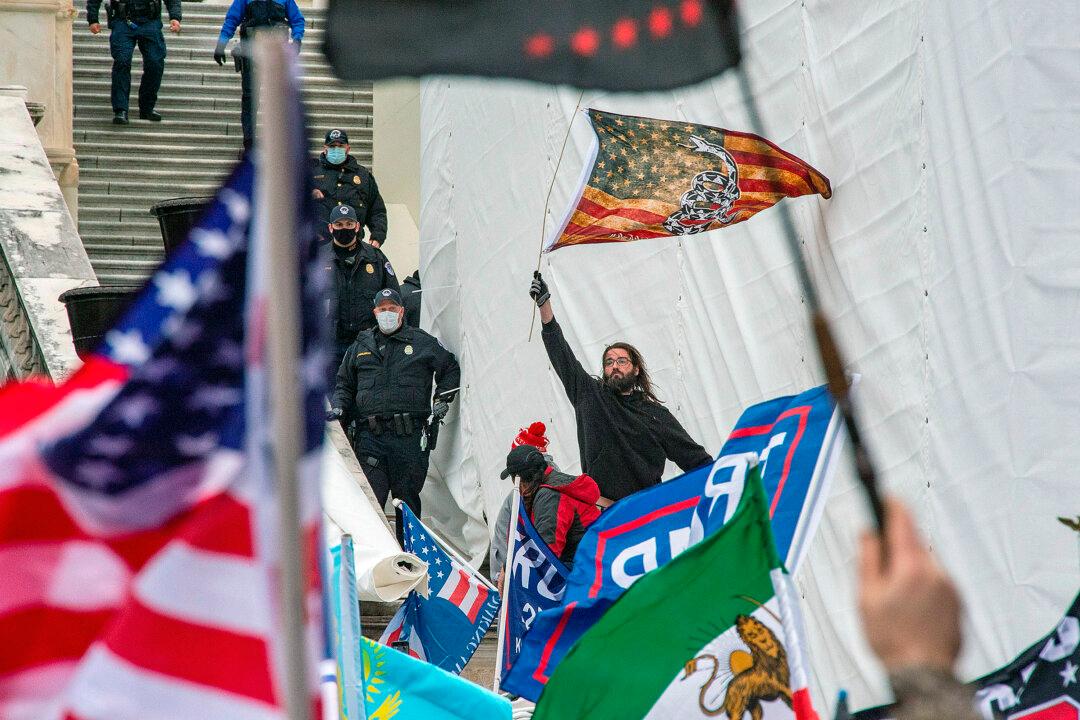Three more criminal-case defendants have joined a petition seeking to have the U.S. Supreme Court review the U.S. Department of Justice’s novel use of an evidence-tampering statute to prosecute those who protested 2020 presidential election results at the Capitol on Jan. 6, 2021.
Defendants Christopher J. Warnagiris, 43, Christopher J. Carnell, 21, and William Robert Norwood III, 40, jointly filed an amici curiae brief (pdf) with the Supreme Court in support of a petition for review of the law filed on July 7 by defendant Edward Jacob Lang, 28.





